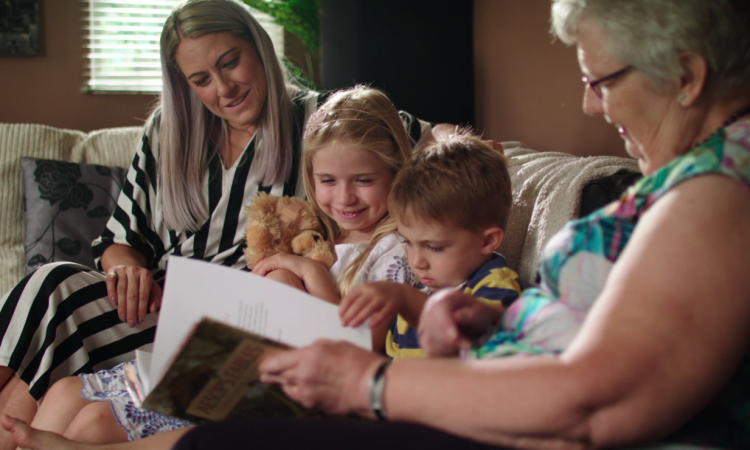
Making Child Arrangements After Divorce or Separation (Child Arrangement Orders)
Need Help with Child Arrangement Orders? Hopkins Solicitors Can Help You Navigate the Maze.
Don’t Go It Alone—Your Child’s Well-being is Too Important, and We’re Here to Guide You.
Navigating child arrangement orders can be an emotionally taxing and complex ordeal. We’re not just talking about a legal procedure; we’re talking about your family. At Hopkins Solicitors, we appreciate the emotional and practical challenges you face.
Why Choose Hopkins Solicitors for Child Arrangement Orders?
- Experience: Our team of family law solicitors have years of expertise in dealing with child arrangement orders, ensuring the best possible outcomes for both parents and children.
- Client-Centric Approach: We are deeply committed to providing personalised service. Your family’s well-being is our utmost priority, and we strive to make the legal process as smooth as possible for you.
- Transparent Pricing: No one should be deterred from seeking justice due to financial constraints. We offer transparent pricing and flexible payment options to suit your needs.
Don’t let legal complexity overwhelm you. At Hopkins Solicitors, we are dedicated to offering clear, compassionate, and customised solutions for your unique circumstances.
Take the first step in securing your child’s future by contacting us today.
What is a Child Arrangement Order?
A Child Arrangement Order (CAO) is a legal document that outlines where a child will live, how much time they will spend with each parent and any other specific arrangements following a divorce or separation. It’s crucial to remember that the welfare of the child is the court’s paramount consideration when determining these arrangements. A CAO aims to provide stability and clarity for children during a challenging time. It helps parents establish a structured and balanced routine, ensuring the child’s best interests are upheld while minimising disputes. Obtaining a CAO can be a constructive step towards creating a positive co-parenting environment that fosters a child’s well-being and development.
Types of Court Orders
In family law, several types of court orders can be crucial for ensuring the well-being of children during and after a divorce or separation:
Child Arrangements Orders:
These are perhaps the most common and outline where a child will live and the time they will spend with each parent. It aims to create a stable routine for the child and provide clarity for both parents.
Specific Issue Orders
These orders address specific concerns or disputes between parents, such as where a child should go to school or which religion they should be raised in. They provide a legal resolution to these particular issues.
Prohibited Steps Orders
These orders prevent one parent from taking certain actions without the court’s permission, such as changing a child’s surname or moving them abroad. They protect the child’s interests and ensure significant decisions are made jointly.
Understanding these types of court orders is vital for making informed decisions and ensuring the best interests of your child during this challenging time.
How Solicitors Can Help
Role of a Solicitor in Child Arrangement Orders:
Solicitors play a pivotal role in child arrangement cases, offering professional guidance and support during emotionally charged situations. They help you understand your legal rights and responsibilities, provide advice on the best course of action, and assist in negotiating arrangements with your former partner. Solicitors also ensure that your case is presented effectively in court, should it come to that, safeguarding your child’s interests.
How Hopkins Solicitors Can Assist You:
At Hopkins Solicitors, we understand the emotional complexity of child arrangement cases and the importance of reaching a fair and amicable solution. Our experienced solicitors are here to provide empathetic, practical, and legal support tailored to your unique situation. We’ll work with you to explore mediation, negotiation, and court proceedings if necessary, all while keeping your child’s well-being at the forefront. Our goal is to help you make informed decisions and achieve the best possible outcome for your child’s future.
How to Apply for a Child Arrangement Order
1. Seek Legal Advice:
Before initiating the process, consult with a solicitor experienced in family law. They will provide valuable insights into your case, explain your rights and responsibilities, and guide you on the best approach.
2. Mediation and Negotiation:
In many cases, it’s beneficial to attempt mediation or negotiation with your former partner before going to court. This can save time, money, and emotional stress. Solicitors can assist in facilitating these discussions.
3. Complete the Application:
If an agreement cannot be reached through mediation or negotiation, your solicitor will help you complete the application for a Child Arrangement Order. This includes detailing the desired arrangements for the child’s living situation and contact with both parents.
4. Attend Court (if necessary):
If an agreement is still elusive, your solicitor will represent your interests in court. The court will consider all relevant factors to make a decision in the best interests of the child.
Remember, the aim is to ensure the child’s well-being and promote positive relationships with both parents. Our solicitors are here to support you throughout this challenging process.
What Happens in Court?
What to Expect:
Going to court can be intimidating, but it’s important to remember that the court’s primary concern is the best interests of the child. Both parties will present their cases, and the judge will consider evidence, witness testimonies, and legal arguments. Your solicitor will guide you through this process and help you prepare.
How to Prepare:
Preparation is crucial. Work closely with your solicitor to gather all relevant documents, evidence, and witness statements. Dress appropriately and be punctual on the court date. Be ready to answer questions and provide information about your child’s welfare.
What Happens After:
After the court proceedings, the judge will issue a Child Arrangement Order, specifying the living and contact arrangements for your child. It’s essential to adhere to the court’s decision. If circumstances change, you may need to seek a variation of the order. Your solicitor can assist you in post-court matters as well.
What if Parties Agree to Depart from the Arrangements?
Sometimes, life brings unexpected changes, and the arrangements agreed upon may need adjustment. If both parties agree to modify the Child Arrangement Order, it’s possible to do so without returning to court. However, it’s essential to make sure the changes are in the best interests of the child.
- Consulting a Solicitor: It’s wise to involve a solicitor when modifying arrangements to ensure the changes are legally sound. They can help draft a new agreement or variation of the existing order, outlining the new arrangements clearly.
- Recording Changes: While not legally required, documenting any changes is advisable. This helps prevent misunderstandings in the future and provides clarity for both parties.
- Keeping the Child’s Welfare Paramount: Remember, any modifications should prioritise the child’s well-being and best interests. Courts will always consider this when reviewing any proposed changes.
Consulting a solicitor can ensure that any agreed-upon modifications are legally sound, protecting the child’s interests and maintaining a cooperative approach between both parties.
Can a Child Arrangements Order Be Varied?
Child Arrangements Orders can be varied, but it’s crucial to remember that these orders are designed to provide stability and consistency for children. Courts won’t grant changes lightly and will always prioritise the child’s best interests.
When Can You Apply for a Variation?
You can apply to vary an order if there has been a significant change in circumstances. This could include relocation, changes in the child’s needs, or one parent consistently failing to meet their obligations.
Consulting a Solicitor
Seeking legal advice is essential when considering variations to a Child Arrangement Order. A solicitor can help you understand the legal process, gather evidence, and present your case effectively in court.
Child’s Best Interests
Courts will only approve changes if they believe it’s in the child’s best interests. Demonstrating this through evidence and a well-considered case is vital when seeking a variation.
Varying a Child Arrangements Order can be complex, so consulting with a solicitor is highly recommended to navigate the legal process effectively and ensure the child’s welfare remains paramount.
What Happens if a Party Breaches the Order?
When a party breaches a Child Arrangements Order, it can be distressing and complicated, especially for the children involved. In such cases, it’s essential to follow legal procedures to resolve the issue.
Mediation and Communication
Initially, parties are encouraged to communicate and consider mediation to resolve disputes. This can help maintain a harmonious co-parenting relationship and prioritise the child’s well-being.
Seeking Legal Remedies
If communication fails or breaches persist, legal remedies can be pursued. This may involve applying for a Specific Issue Order or Prohibited Steps Order to address specific issues or concerns.
Enforcement of the Order
Courts have various enforcement options available, such as fines, community service orders, or even imprisonment for serious breaches. However, the court’s primary focus remains the child’s welfare.
Legal Guidance
Consulting a solicitor is advisable when dealing with breach issues. They can guide you through the legal process, ensuring your rights are protected, and, most importantly, the child’s interests are safeguarded.
How Long is a Child Arrangements Order in Force For?
Child Arrangements Orders don’t have a set expiration date. They are typically in force until a child reaches the age of 16. However, if the court deems it necessary, an order can continue until the child turns 18. It’s important to note that Child Arrangements Orders can be reviewed or varied if circumstances change, ensuring they remain in the child’s best interests. Seeking legal advice can help you understand the duration of your specific order and how to navigate any potential changes or extensions effectively. This flexibility aims to provide stability and support for the child’s evolving needs.
Conclusion
You don’t have to face this alone. At Hopkins Solicitors, we understand the emotional and practical challenges that arise when dealing with issues of child custody and arrangements during times of separation or divorce. Our professional, empathetic, and experienced solicitors are here to guide you through the process, offering legal advice tailored to your unique situation.
We firmly believe that the best interests of the child should always be at the forefront of these decisions, and we’re dedicated to helping you achieve that. Whether you need assistance in applying for an order, understanding your rights, or resolving disputes, we have the expertise to support you every step of the way. Your child’s welfare is our priority, and we’re here to provide the compassionate and knowledgeable legal advice you need to move forward.
FAQs
How do I get to see my kids?
Children have a right to have a relationship with both their parents unless one or both of them poses a risk to the children. We can help you try to persuade the other parent to set up arrangements for the kids and if that doesn’t work take you through the steps required for a Child Arrangements Order, where a Court states exactly when the children should spend time with each parent, and warns any parent that they could be punished if they don’t allow it.
What rights do grandparents have to see their children?
Children have a right to know about their wider family. Although slightly trickier to do than it would be for Parents, Grandparents can also apply for a Child Arrangements Order, and we’re happy to take Grandparents through that process.
How can I change the arrangements for the kids?
Many mums & dads do this directly. Some, sadly, don’t get on well enough to change arrangements themselves. We can help. We can send a firm-but-friendly letter. We can set up Mediation (a chance for the parents to come up with their own outcome with a trained professional’s help). And if necessary we can help you apply for a Child Arrangements Order (where a Court decides the children’s new arrangements)
What is a Child Arrangements Order (CAO)?
A Child Arrangements Order is a legal document that determines where a child will live and who they will have contact with when their parents or guardians are separated or divorced. It outlines the specific arrangements for the child’s care, including visitation rights and residence arrangements.
Who Can Apply for a Child Arrangements Order?
In most cases, either parent or guardian can apply for a Child Arrangements Order. Additionally, grandparents, other family members, or those with a significant interest in the child’s welfare can also make an application. However, the court will consider the child’s best interests when making a decision.
How Does the Court Decide on Child Arrangements?
The court’s primary concern is the welfare of the child. They consider various factors, including the child’s age, wishes, and emotional needs. They also assess the capability of each parent or guardian to provide a safe and supportive environment for the child. Mediation and negotiation are encouraged before court proceedings.
Can Child Arrangements Orders Be Changed?
Yes, Child Arrangements Orders can be changed if circumstances change. If one parent wishes to alter the arrangements or if there is a significant change in the child’s life, such as schooling or a parent’s relocation, they can apply to the court for a variation.
How Long Does it Take to Get a Child Arrangements Order?
The duration of obtaining a Child Arrangements Order can vary. It depends on factors like the complexity of the case, court availability, and whether parents can reach an agreement outside of court. Generally, it’s advisable to seek legal advice to streamline the process and reduce delays.
Request a Callback
"*" indicates required fields
Meet the Team
-

Alice Wilkinson
Associate Solicitor
-

Bethany Kirk
Apprentice Solicitor
-

Charlotte Geeves
Apprentice Solicitor
-

Claire Morris
Chartered Legal Executive
-

David Winnett
Partner & Solicitor
-

Michelle Saxton
Chartered Legal Executive
-

Oliver Parr
Solicitor
-

Rebecca Jackson
Director and Solicitor
-

Ross Hubbard
Associate Solicitor
Testimonials
-
Thank you Claire for supporting me during this difficult time for my family. With your support and kindness I got the outcome me and my daughter wanted. Thank you for listening and giving great advice.
Jodie Atherton, 30th August 2024
-
Excellent communication and guidance throughout the process, and advice on what to expect within the proceedings and outcomes.
Kirsty-Anne Divers, 24th May 2024
-
Fantastic service went above and beyond nothing was to much for Alice in this complex case.
Amanda and Shaun Waterfall, 7th November 2022
Related Articles
-

Legal guide to domestic abuse: What is a Non-Molestation Order?
A Non-Molestation order is an injunction obtained through the Family Court. More commonly known as a restrainging order, it provides…
-

Legal guide to child maintenance, if you are a millionaire
The Barclays “Prosperity Index” estimates that 1 in 67 UK adults is a millionaire. The population of Nottinghamshire is approximately…